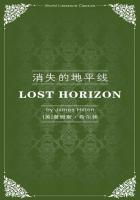The most distinguished of living Englishmen, who, great as he is in many directions, is perhaps inherently more a man of letters than anything else, has been overheard mournfully to declare that there were more booksellers' shops in his native town sixty years ago, when he was a boy in it, than are today to be found within its boundaries. And yet the place "all unabashed" now boasts its bookless self a city!
Mr. Gladstone was, of course, referring to second-hand bookshops. Neither he nor any other sensible man puts himself out about new books. When a new book is published, read an old one, was the advice of a sound though surly critic.
It is one of the boasts of letters to have glorified the term "second-hand", which other crafts have "soiled to all ignoble use". But why it has been able to do this is obvious. All the best books are necessarily second-hand. The writers of today need not grumble. Let them "bide a wee." If their books are worth anything, they, too, one day will be second-hand. If their books are not worth anything there are ancient trades still in full operation amongst us—the pastry cooks and the trunk-makers—who must have paper.
But is there any substance in the plaint that nobody now buys books,meaning thereby second-hand books? The late Mark Pattison, who had 16 000 volumes, and whose lightest word has therefore weight, once stated that he had been informed, and verily believed, that there were men of his own University of Oxford who, being in uncontrolled possession of annual incomes of not less than£500, thought they were doing the thing handsomely if they expended£50 a year upon their libraries. But we are not bound to believe this unless we like. There was a touch of moroseness about the late rector of Lincoln which led him to take gloomy views of men, particularly Oxford men.
No doubt arguments a priori may readily be found to support the contention that the habit of book-buying is on the decline. I confess to knowing one or two men, not Oxford men either, but Cambridge men (and the passion of Cambridge for literature is a by-word), who, on the plea of being pressed with business, or because they were going to a funeral, have passed a bookshop in a strange town without so much as stepping inside "just to see whether the fellow had anything ". But painful as facts of this sort necessarily are, any damaging inference we might feel disposed to draw from them is dispelled by a comparison of price-lists. Compare a bookseller' s catalogue of 1862 with one of the present year, and your pessimism is washed away by the tears which unrestrainedly flow as your see what bonnes fortunes you have lost. A young book-buyer might well turn out upon Primroses Hill and bemoan his youth, after comparing old catalogues with new.
Nothing but American competition, grumble some old stagers.
Well! Why not? This new battle for the books is a free fight, not a private one, and Columbia has "joined in". Lower prices are not to be looked for. The book-buyer of 1900 will be glad to buy at to-day' s prices. I take pleasure in thinking he will not be able to do so. Good finds grow scarcer and scarcer. True it is that but a few short weeks ago I picked up (such is the happy phrase, most apt to describe what was indeed a "street casualty") a copy of the original edition of Endymion (Keats' s poem—O subscriber to Mudie ' s! —not Lord Beaconsfield' s novel) for the easy equivalent of half-a-crown—but then that was one of my lucky days. The enormous increase of booksellers' catalogues and their wide circulation amongst the trade has already produced a hateful uniformity of prices. Go where you will it is all the same to the odd sixpence. Time was when you could map out the country for yourself with some hopefulness of plunder. There were districts where the Elizabethan dramatists were but slenderly protected. A raid into the "bonnie North Countries" sent you home again cheered with chap-books and weighted with old pamphlets of curious interests; whilst the West of England seldom failed to yield a crop of novels. I remember getting a complete set of the Bronte books in the original issues at Torquay, I may say, for nothing. Those days are over. Your country bookseller is, in fact, more likely, such tales does he hear of London auctions, and such catalogues does he hear of London auctions, and such catalogues does he receive by every post, to exaggerate the value of his wares than to part with them pleasantly, and as a country bookseller should, "just to clear my shelves, you know, and give me a bit of room." The only compensation for this is the catalogues themselves. You get them, at least, for nothing, and it cannot be denied that they make mighty pretty reading.
These high prices tell their own tale, and force upon us the conviction that there never were so many private libraries in course of growth as there are to-day.
Libraries are not made; they grow. Your first two thousand volumes present no difficulty, and cost astonishingly little money. Given£400 and five years, and an ordinary man can in the ordinary course, without undue haste or putting any pressure upon his taste, surround himself with this number of books, all in his own language, and thenceforward have at least one place in the world in which it is possible to be happy. But pride is still out of the question. To be proud of having two thousand books would be absurd. You might as well be proud of having two top-coats. After your first two thousand difficulty begins, but until you have ten thousand volumes the less you say about your library the better. Then you may begin to speak.














